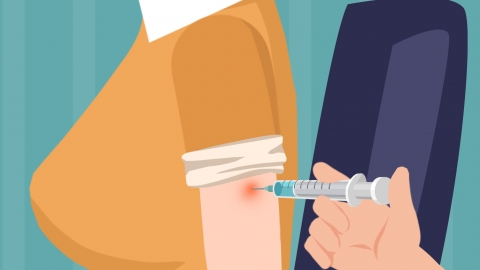Why are some people extremely afraid of getting injections?
Some people are extremely afraid of injections, primarily due to factors such as heightened pain sensitivity, negative childhood experiences, fear of unknown risks, visual aversion to needles, and amplified psychological stress and anxiety. This fear is usually the result of a combination of physiological and psychological factors. If someone refuses necessary medical treatment due to fear of injections, or experiences severe panic that leads to physical discomfort, it is advisable to seek timely medical consultation.
1. Heightened Pain Sensitivity: Individuals vary in the distribution and sensitivity of pain nerves. Some have a lower pain threshold and therefore perceive the pain from needle penetration and medication injection more intensely, naturally leading to resistance and fear.
2. Influence of Negative Childhood Experiences: Painful memories of injections during childhood, improper procedures by healthcare providers, or lack of comfort when crying during past injections can create lasting psychological trauma. These negative memories may trigger conditioned fear responses toward injections even in adulthood.

3. Fear of Unknown Risks: A lack of medical knowledge may lead individuals to worry about potential complications from injections, such as infections, bleeding, or drug allergies. Concerns about unsterile needles or procedural errors can also cause excessive anxiety and fear.
4. Visual Fear Related to Needles: For some people, seeing the sharp appearance of a needle or witnessing the process of skin penetration during injection can trigger strong physical reactions, such as dizziness or nausea, resulting in avoidance behavior and fear of injections.
5. Amplification by Psychological Stress and Anxiety: In the context of receiving an injection, anxiety can intensify the perception of physical discomfort. Worrying about being unable to tolerate the pain creates a vicious cycle—"the more fearful, the more sensitive"—further increasing the level of fear.
To manage injection-related fear, individuals can communicate with healthcare providers in advance to understand the injection procedure and precautions; distract their attention during the injection by listening to music or focusing on distant objects; consciously relax their muscles to prevent increased pain caused by tension; and gradually reduce fear through positive experiences.





